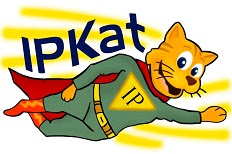
Brazilian Government Tailors a Bill on Trade Sanctions

The concern has been the lack of a local law dealing with the applicability of commercial sanctions when Brazil wins complaints in WTO Settlement Disputes. A specific law in this regard has been recognized as of great use, since it will provide the weapons and the criteria to implement the sanctions.
As a result, the government concluded in a rush a draft of proposed law and delivered it to the Parliament on November 23, 2009. In a nutshell, the Bill establishes the weapons that may be used by the government. Among them is the intellectual property rights, which encompasses the suspension of royalty remittances derived from technology transfer and licensing agreement, the grant of compulsory licenses and the importation allowances of drugs and generic drugs still under local patent protection.
To secure the enforcement of the US$350 million in sanctions against the United States, recently issued by the WTO against the subsidies of cotton producers, the government is pressing hard the Parliament for approval of the Bill by Christmas. If Mr Lula feels that it will not get sufficient support in Parliament, he intends to immediately issue a Provisional Measure to make the contents of the Bill immediately enforceable.
For the general knowledge, a Provisional Measure is a type of law coming from an act of the President issued in case of urgency or extreme importance. The publication makes the Provisional Measure immediately effective for a period of 45 days (http://www.v-brazil.com/government/laws/laws.html).
The government is studying the options set by the Bill that may impact the most the American government. The identified preferences of the Brazilian government are as follows: (a) 1st Option – Suspension of intellectual property rights of American companies during the period of the sanction (until the American government phases out the condemned subsidies); (b) 2nd Option – Application of an additional tax or duty to royalty remittances; (c) 3rd Option – Suspension of royalty remittances and (d) 4th Option – Suspension of the internal rule that prohibits parallel importation, thereby allowing the entry of products without the prior and express authorization of the trademark/patent titleholder.
Such IP sanctions will be adopted further to the ‘normal’ commercial sanctions applicable on approximately 220 American products.
The Americans have been reacting against the Bill. They have been alleging that there is no reason for applying the sanctions, since the illegal cotton subsidies will be soon phased out. The Brazilian diplomacy has stated that such promise has been made but not fulfilled since 2005, when the WTO’s condemnation was issued for the first time.
The Bill or Provisional Measure will be posted on IP Tango soon after the final version is disposed to the press.






































